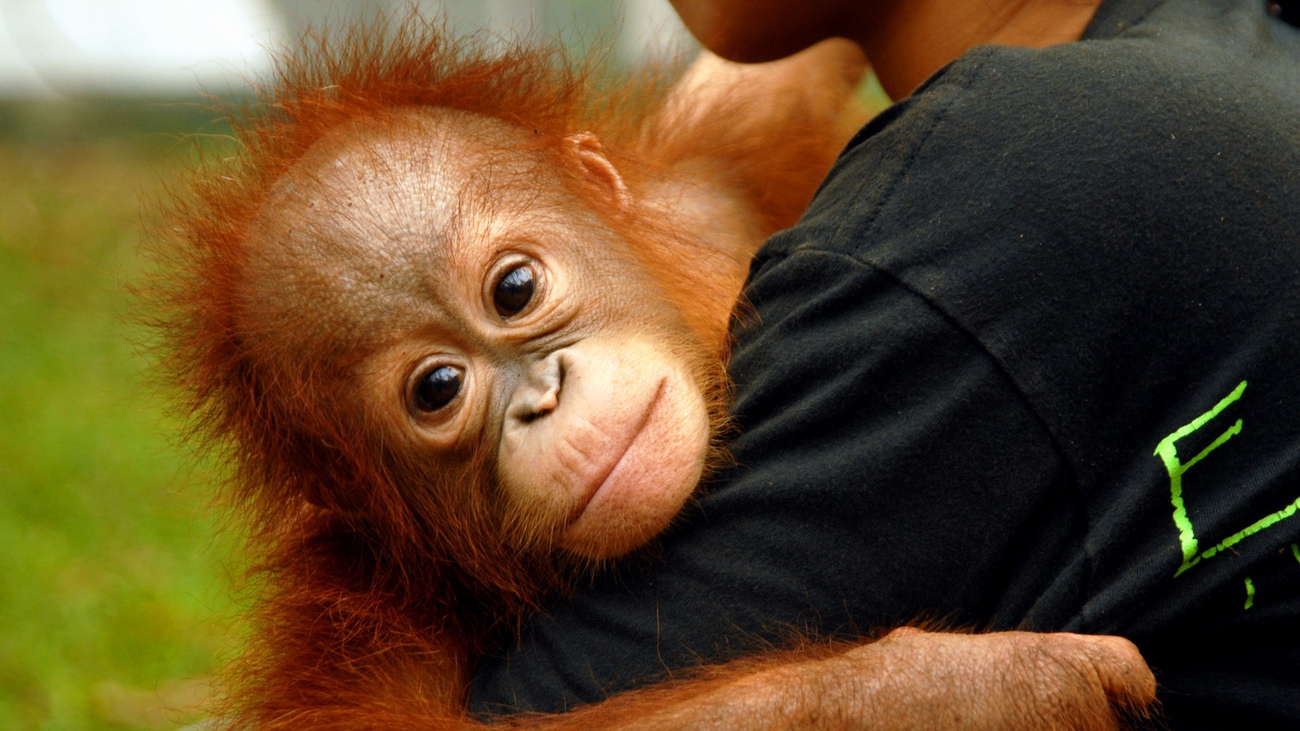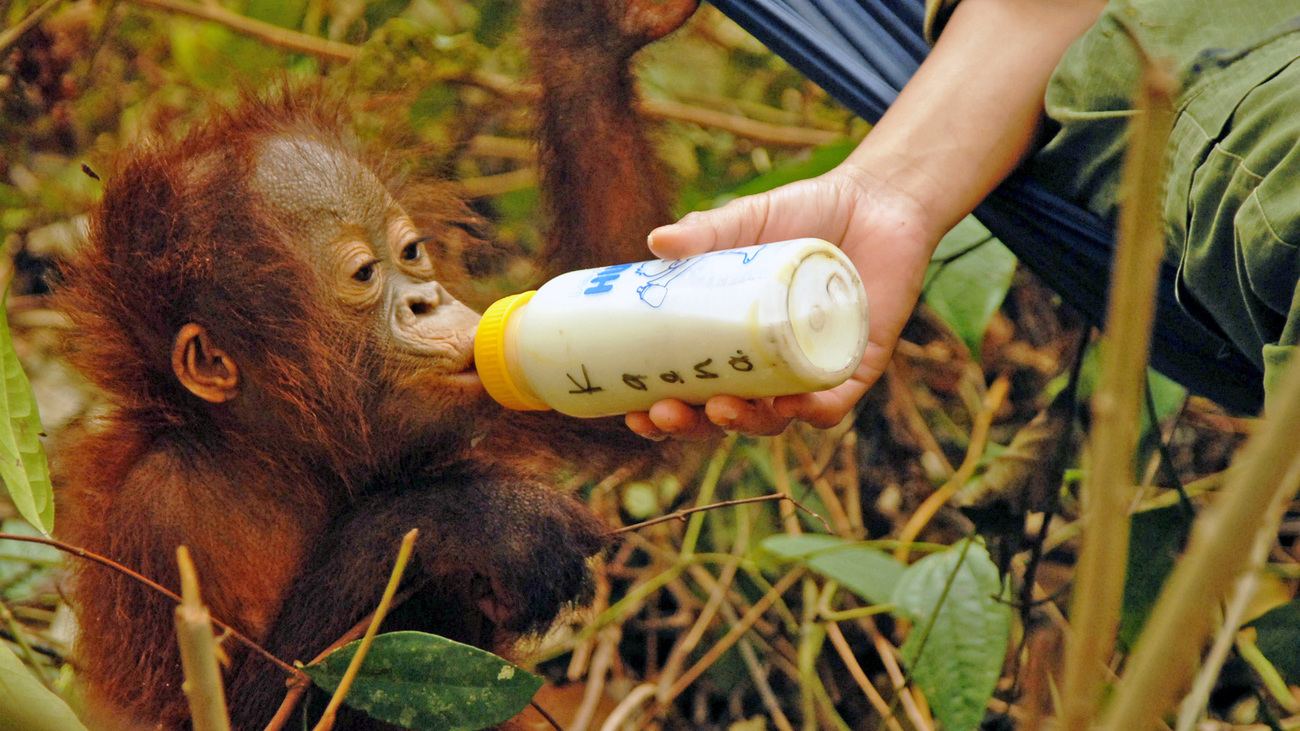Press releases
40 years after the whaling ban – whales continue to die
Read moreRescued baby orangutan takes first steps toward rehabilitation

A baby orangutan who was rescued from traffickers by one of IFAW’s partners in Indonesia has now been transferred to a rehabilitation centre.
In May, IFAW’s partner Jakarta Animal Aid Network (JAAN) and the Wildlife Trust of India (WTI) carried out a daring undercover investigation into online wildlife trafficker networks in Indonesia.
A ten-month-old male orangutan was among the many endangered animals they rescued. They named him Logos, after the police official involved with the raid.
JAAN’s co-founder Femke den Haas said, “Orangutans are very popular in Thailand, so he was destined to be used in entertainment shows in the zoos there. Luckily, we could intervene and rescue this baby.”
For the first several months after his rescue, JAAN and their partners cared for Logos round the clock. Like human babies, he needed to drink milk every two hours.
He had also experienced horrific trauma before being rescued.
“Orangutan mothers will never let go of their babies, so they are killed and then the babies are separated from their mothers’ bodies,” Femke explained.
Because his condition was so fragile, and the police needed him as evidence for their investigation, JAAN couldn’t take him to a rehabilitation facility straightaway.

JAAN originally planned to transfer him to a rehabilitation center in Kalimantan that was founded by Birutė Galdikas, one of the “Trimates”—three women primatologists, including Jane Goodall, who studied primates in their natural environments.
However, severe fires around Kalimantan delayed plans. For decades, farmers have set fires to clear land for crops, such as palm oil. But Indonesia’s current dry weather made the fires rage out of control, with disastrous consequences for both humans and biodiversity.
Smoke from the fires is causing widespread breathing problems and destroying fragile ecosystems.
Fortunately, in October JAAN could finally transport Logos to another rehabilitation facility in southern Kalimantan. Once he is settled in, he will start forest school, in the hope that he can eventually live in the wild again.
The process of rehabilitating an orangutan takes many years. Femke explains: "Logos would normally have learned all survival skills from his mother. In the wild, he would still stay close to his mother for up to eight years. With much care and love, an orangutan mother teaches her baby what fruits, leaves, and insects to eat, how to make a nest at extreme heights in the rainforest trees, what predators to look out for, and more.
"This is now the task of the caring and dedicated team at the rehabilitation centers. Logos has a ‘foster mom’ who brings the orphan orangutans to the forest playground every day to explore, learn to climb trees, and eat natural forest foods.”
The maximum penalty for wildlife trafficking in Indonesia is five years’ imprisonment and a fine of 100 million rupiah (around USD $6,500).
The trader who captured the baby orangutan has not yet been found, but the police are looking for him, and JAAN continues to disrupt these criminal networks.
Every problem has a solution, every solution needs support.
The problems we face are urgent, complicated, and resistant to change. Real solutions demand creativity, hard work and involvement from people like you.
Unfortunately, the browser you use is outdated and does not allow you to display the site correctly. Please install any of the modern browsers, for example:
Google Chrome Firefox Safari